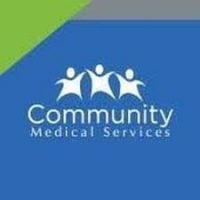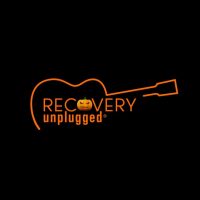Developmental Counseling Center
Drug Rehab Center in Austin, Texas
- Opioid Addiction
- Dual Diagnosis
- Drug Addiction
- Alcoholism
The Developmental Counseling Center in Austin, Texas offers evidence-based substance abuse and addiction treatment with a focus on individualized and group therapies in a supportive environment.
Multiple patients have reported Developmental Counseling Center as permanently closed.
Research other rehabs in Austin, Texas, or get help finding an open facility.
Our experts will find you an alternative facility.
(888) 674-0062 24/7 Free, Confidential, Expert HotlineAbout This Texas Facility
Developmental Counseling Center in Austin, Texas is a comprehensive addiction treatment facility that offers a range of services for individuals looking to overcome their substance abuse issues. Specializing in the treatment of alcoholism, opioid addiction, dual diagnosis, and drug addiction, this center provides a supportive and nurturing environment for individuals seeking recovery. With a focus on personalized care, Developmental Counseling Center aims to address each patient's unique needs and develop a treatment plan tailored to their specific situation. Located in the heart of Austin, this facility strives to help individuals find long-lasting recovery and regain control of their lives.
Developmental Counseling Center provides a variety of treatment methods and services to address the diverse needs of its patients. Through their drug rehab program, individuals can benefit from a structured and supportive environment to help them break free from the cycle of addiction. The center also offers dual-diagnosis treatment, recognizing the importance of addressing any underlying mental health issues that may contribute to substance abuse. In addition, Developmental Counseling Center provides intensive outpatient and outpatient levels of care, allowing individuals to receive ongoing support while maintaining their daily lives. Their treatment approach focuses on evidence-based therapies, such as cognitive-behavioral therapy, individual counseling, group therapy, and relapse prevention techniques, to help individuals develop the skills and strategies needed to maintain sobriety in the long term.
Genders
Ages
Modality
Additional
Conditions and Issues Treated
Opioid abuse has become a national epidemic in the last decade. The US has one of the world’s highest rates of opioid use and abuse, as well as opioid-related deaths. Opioids are classified as Schedule II-IV controlled substances in the US due to their high potential for abuse.
Oxycodone, hydrocodone, methadone, and fentanyl are the most common Opioids and are commonly prescribed to treat pain. Tolerance to opioids develops over time, making life difficult, if not impossible, without them. Opioid users often obtain the drugs illegally. They can be drug dealers, friends, or family members who do not have valid prescriptions.
The desire for a more intense high than prescription opioids can quickly lead to heroin use. Heroin users are more prone to illness and death due to the high risk of overdose.
Many opioid addicts who seek treatment believe that the only way to overcome their addiction is through medical detox and long-term drug addiction rehab. To help patients wean off their addiction and reduce the risk of overdose, medication-assisted therapy (MAT) involves prescribing a replacement opioid. Doctors use MAT in conjunction with other anti-craving medications to help patients maintain recovery. Due to the high risk of relapse, MAT is often combined with individual and group counseling and social support programs.
When addiction and psychiatric issues co-occur, the addict’s recovery is more successful when both conditions are treated. A dual diagnosis refers to a condition in which the patient is diagnosed with two health issues: addiction and bipolar disorder. The most common therapies are psychotherapy, behavioral therapy, spiritual counseling, 12-step programs, and medication management.
Levels of Care Offered at Developmental Counseling Center
This center offers a variety of custom treatment tailored to individual recovery. Currently available are Drug Rehab, Dual-Diagnosis, Intensive Outpatient, Outpatient, with additional therapies available as listed below.
Intensive outpatient treatment is a form of addiction care that allows patients to continue living at home while undergoing treatment. This type of care is appropriate for patients who have been treated in residential treatment programs. Intensive outpatient programs include regular visits to the facility providing therapy, and patients gradually return to their routine life. IOP benefits most when patients have a supportive family member or friend to help them recover.
The first step to getting into an intensive outpatient program is to attend a detoxification facility. Detoxification facilities are designed to remove substances from the body safely. The patient will attend sessions designed to help them understand their addiction and its impact on their lives. While in an intensive outpatient program, therapy sessions are scheduled three to five times per week, with the patient attending no more than two sessions in one day.
An outpatient treatment program is set up to help with alcohol or drug addiction or a co-occurring disorder. The patient must attend the facility for their therapy and other programs but can return home each night.
The frequency of mandatory attendance decreases after much of Developmental Counseling Center‘s program is complete.
Outpatient treatment is a recovery approach that allows recovering addicts to live at home while getting rehab for addiction
An outpatient can include day treatments which include attending group sessions one hour per week. A person living in an outpatient environment may be allowed the opportunity to work full time if they choose to and continue studies without interruption from drugs/alcohol.
Outpatient treatment is an option for people who want to maintain their careers and families. Outpatients live at home but attend treatment such as individual counseling, group counseling, or twelve-step meetings during the day.
Therapies & Programs
In group therapy, recovering addicts meet with a therapist and other people in recovery. Some groups are closed, meaning only people who share the same addiction or problem can attend. Others are open to anyone who wants to stop using drugs or drinking alcohol. Group therapy sessions typically focus on one topic each week or month so that recovering addicts can discuss issues they face daily.
Payment Options Accepted
For specific insurance or payment methods please contact us.
Additional Details
Specifics, location, and helpful extra information.
Austin, Texas 78704 Phone Number(512) 383-1036 Meta DetailsUpdated November 25, 2023
Staff Verified
Patient Reviews
There are no reviews yet. Be the first one to write one.
Austin, Texas Addiction Information
Texas is one of the primary hubs for drug smuggling into the country. The border between Texas and Mexico is more than 1,000 miles long. More than 10 million residents use alcohol every year and more than 25% of those are minors. Alcohol and drug use has become so common in Texas that almost 15% of all deaths can be attributed to these substances.
Austin, Texas, has a drug addiction problem that is sadly serious. According to recent statistics, half of the state's overdose deaths occurred in the city of Austin. This means that, on average, there are about 2.5 drug overdose deaths in Austin each day. There are also many sober support groups in Austin to help you stay on track and focus on your recovery goals.
Treatment in Nearby Cities
- Weatherford, TX (174.9 mi.)
- Rosenberg, TX (127.6 mi.)
- Alpine, TX (350.7 mi.)
- Mansfield, TX (165.9 mi.)
- Marble Falls, TX (37.5 mi.)
Centers near Developmental Counseling Center




The facility name, logo and brand are the property and registered trademarks of Developmental Counseling Center, and are being used for identification and informational purposes only. Use of these names, logos and brands shall not imply endorsement. RehabNow.org is not affiliated with or sponsored by Developmental Counseling Center.




